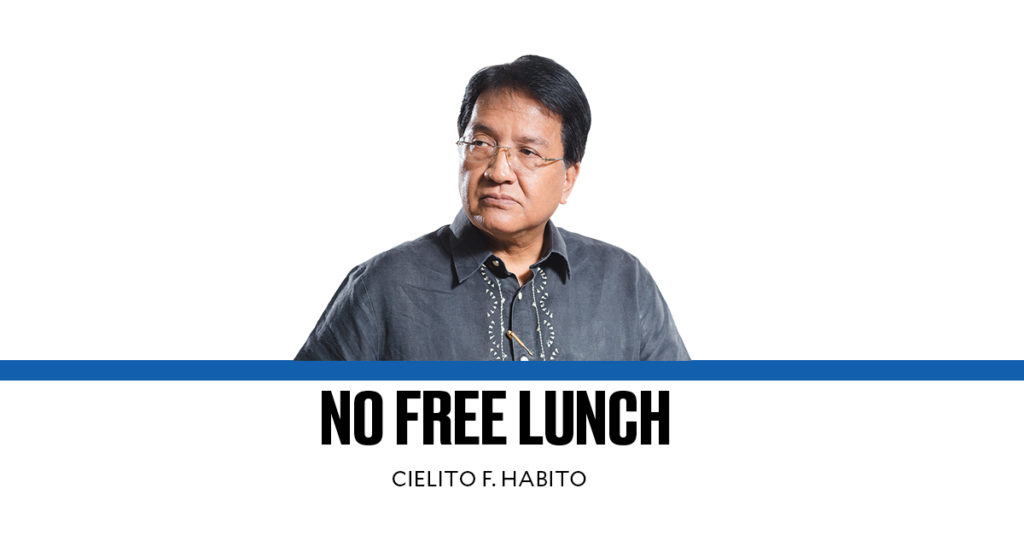As a new administration prepares to take over the reins of government, it needs to firm up its strategy for moving the country forward. Given the state of our country and its people right now, my unsolicited advice is to start with the basics, and these boil down to our two assets needing utmost attention: our people and our land. Let me elaborate.
The greatest toll the pandemic has taken on us has been its human cost, in how it severely compromised health and nutrition, and disrupted education, especially among lesser-endowed Filipinos. COVID-19 delivered a debilitating blow to what was already a battered health, nutrition, and education status, especially of our children—the cumulative result of many years of seeming benign neglect. The signs had been staring us in the face: worst rankings worldwide in reading, science, and mathematics; lowest average IQ among all 10 Asean member states; and higher incidence than in most of our Asean neighbors of stunting due to severe malnutrition in children five years old and below.
Our progressive deterioration in education started decades ago. When I resumed teaching duties at the University of the Philippines-Los Baños in the mid-’80s after five years of post-graduate studies overseas, I recall feeling shocked at the very discernible general decline in my students’ capabilities. It couldn’t have been due to an easing of UP’s admission standards, and I could only blame a likely decline in the quality of our high school education then.
By 1991, Congress saw it fit to create the Joint Congressional Commission to Study and Review Philippine Education (EDCOM) over a 12-month time frame, noting the palpable and continuous decline in the quality of Philippine education. EDCOM noted that (1) school dropout rates were inordinately high, especially in rural areas, probably caused by inadequacy of preparation among young children; (2) government investment in the education system was inadequate, including in teaching materials and learning resources for primary education; (3) the education system was poorly managed; (4) there is a lack of curriculum upgrading; (5) programs and facilities for special education (i.e., for children with special needs) were lacking; and (6) tertiary and technical-vocational education institutions lacked coordination with industry and market focus, leading to job-skills mismatch and poor job placement of graduates.
A tangible outcome of EDCOM 1991 was the “tri-focalization approach” that led to the establishment of the Commission on Higher Education and the Technical Education and Skills Development Authority. The former Department of Education, Culture and Sports (DECS) would then focus exclusively on basic education (elementary to high school) and was renamed the Department of Education (DepEd). I recall how then DECS Secretary Isidro Cariño loudly protested the “dismemberment” of his department, predicting disastrous results.
Whether that split contributed to it or not, the decline in Philippine education appeared to have continued, leading us to the damning international rankings our educational system is known for now. Three decades since the last EDCOM, our education system again cries out for a long and hard look, hopefully with all of us putting our heads together to chart the right way forward. The group Philippine Business for Education is spearheading the call for a new multisectoral Education Commission participated in by all sectors of society “to analyze the gaps, look for opportunities and pave the ground on which we build our (educational) reform efforts.” Incoming Education Secretary Sara Duterte-Carpio would do well to make it one of her first moves, if we are to inspire confidence in the country’s education future, the same way the appointment of respected new economic managers is doing for the economy.
Apart from people, the other basic concern is land, where the imperative boils down to vastly improving the productivity and competitiveness of our agriculture sector. This requires a separate discussion of its own, and in the meantime, we all await with bated breath the choice of the person to lead the sector in the next six years.
—————-
cielito.habito@gmail.com
